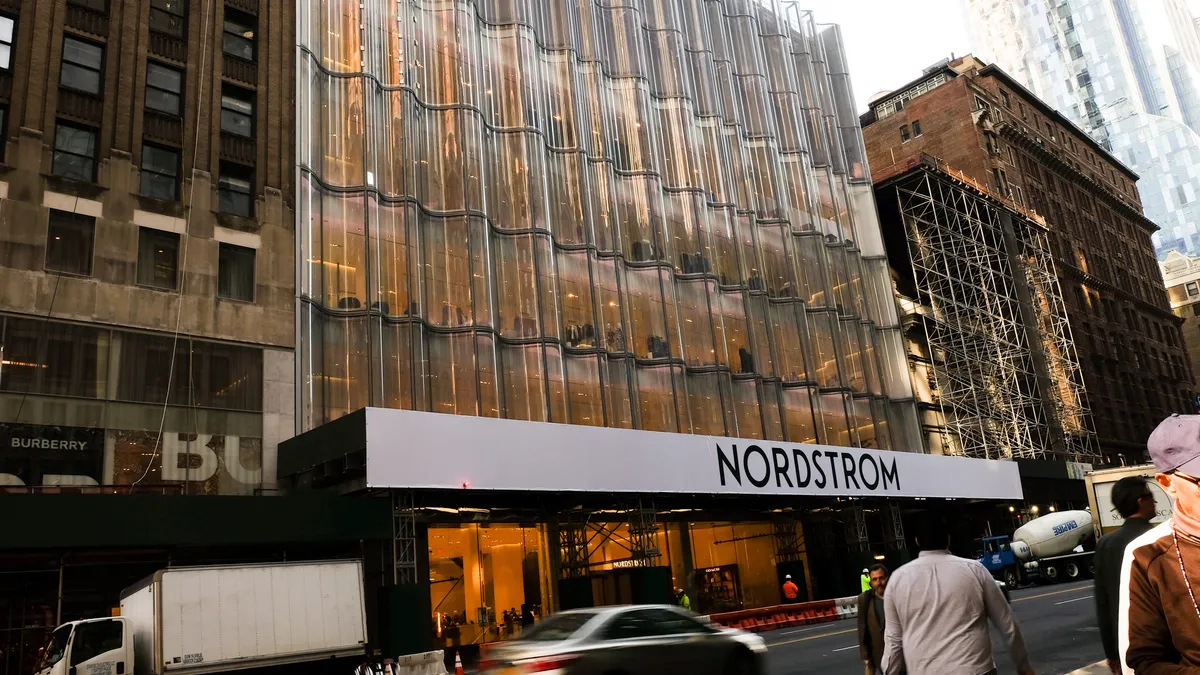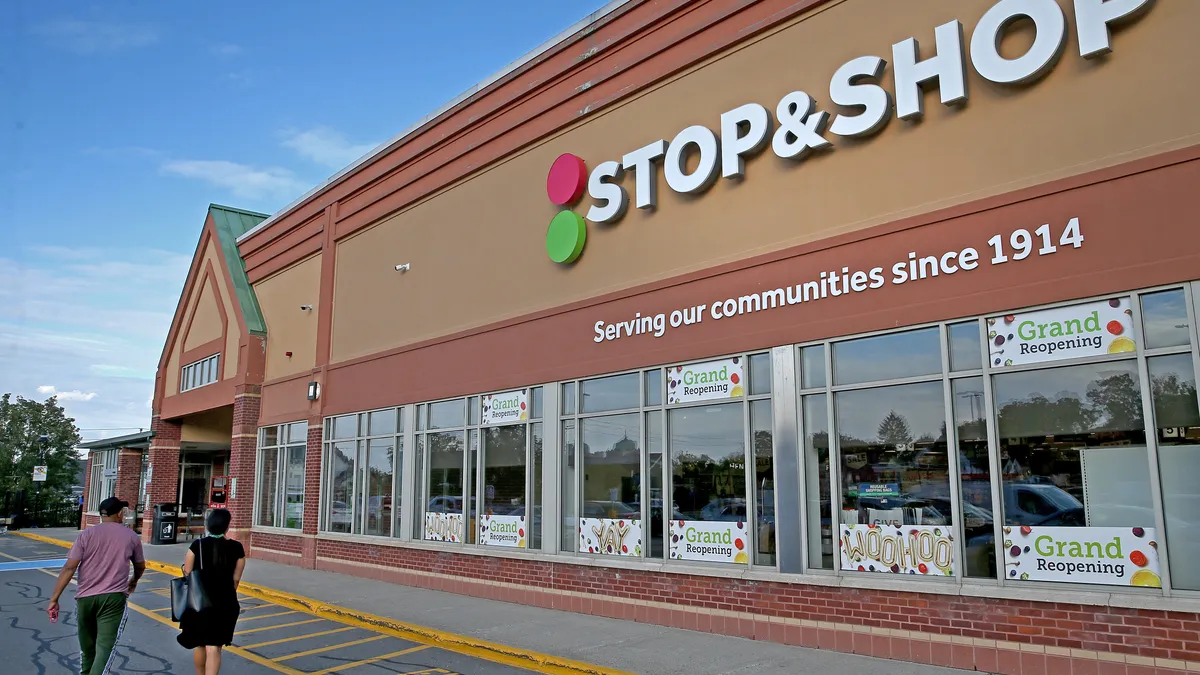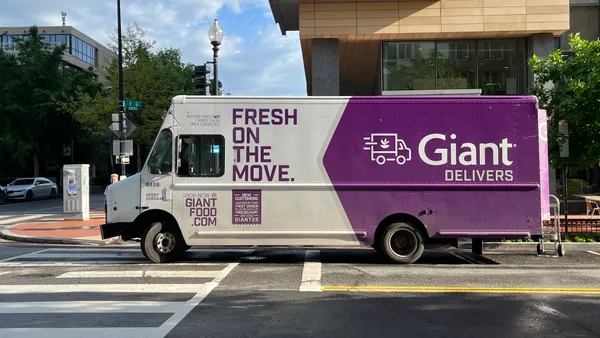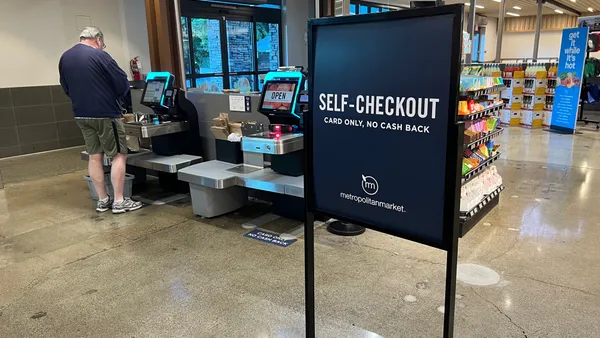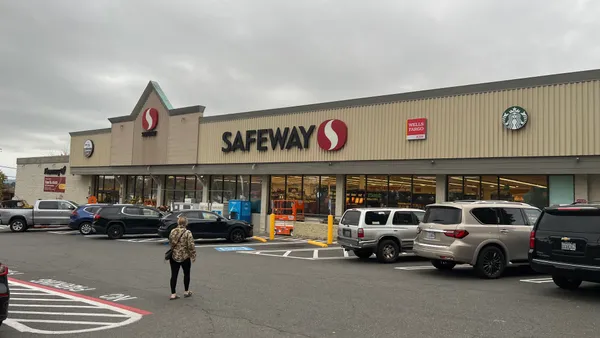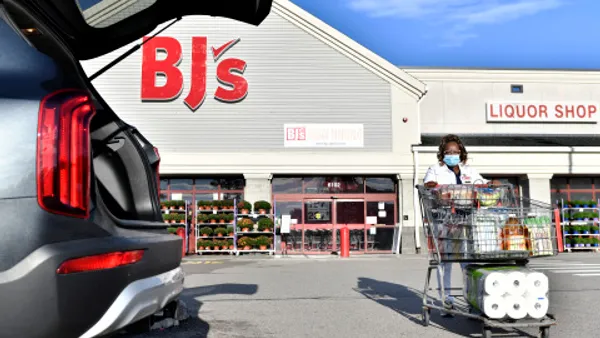Dive Brief:
-
In a letter to Congressional leaders of both parties, 20 retail executives on Thursday urged passage of the "Integrity, Notification and Fairness in Online Retail Marketplaces" (INFORM) Consumers Act, which among other provisions would require greater transparency around online sellers operating on Amazon, eBay and other marketplaces.
-
The group includes the CEOs at Kroger, Meijer, Southeastern Grocers, Target, Dollar General, CVS Health, Nordstrom and Walgreens, among others.
-
The rules would help law enforcement tackle the spate of retail thefts plaguing retailers across the country and reduce their appeal by making it more difficult to sell stolen goods online, according to research from the Buy Safe America Coalition, a Retail Industry Leaders Association project.
Dive Insight:
Some $68.9 billion worth of goods were stolen from retailers in 2019, before the pandemic and the recent rash of organized store thefts, according to Buy Safe America. Now, nearly 67% of asset protection managers at major retailers report a "moderate to considerable increase in organized retail crime," and even more anticipate the situation worsening, according to the group's report.
Among the most high-profile organized retail thefts this year was a smash-and-grab robbery at the Nordstrom store in San Mateo, California. Following that, several retailers joined Nordstrom in curtailing their hours in an effort to keep customers, employees and merchandise safe, according to the San Jose Mercury News. Earlier this month, California Attorney General Rob Bonta announced the sentencing of "multiple defendants" in a theft last year of $8 million worth of goods from CVS, Target and Walgreens stores.
"There's also been a couple of $1 million busts of goods such as over-the-counter drugs, and beauty products and cosmetics," Michael Hanson, RILA's senior executive vice president of public affairs, said by phone. "And when you have that much stolen consumer goods, you're not selling that on the street or in a flea market, and it's become difficult to sell to pawn shops now, given the rules that most states have put in. So the last place that's left to move that many products is online."
If enacted, the INFORM law would require online retail marketplaces that include third-party sellers to authenticate the identity of "high-volume third-party sellers," according to an earlier press release from Senator Dick Durbin, D-IL, one of its sponsors. That would "help deter the online sale of counterfeit goods by anonymous sellers and prevent organized retail crime rings from stealing items from stores to resell those items in bulk online," per that release. The bill would also allow shoppers to see such sellers' basic identification and contact information.
That would make it easier for law enforcement to track the flow of stolen goods, and could help reduce crime by interfering with what is now a fairly easy sales channel for stolen goods, Hanson said.
After previously opposing the legislation, marketplaces Etsy, Mercari, eBay, Poshmark and Offerup in October endorsed the latest version of the bill. A Walmart spokesperson previously told sister publication Retail Dive that it fully supports the legislation.
An Amazon spokesperson on Friday said the e-retailer supports the House version of the bill, but declined to comment on the connection, made by RILA and the 20 CEOs, between the raft of retail crime and the ease of selling goods online. "Amazon does not allow third-party sellers to list stolen goods in our store, and we work closely with law enforcement, retailers, and brands to stop bad actors and hold them accountable," the spokesperson said in an emailed statement.
Retail theft tends to be a crime of opportunity — most thieves take what's easiest to steal, when and where it's easiest to get away with it. "However, professionals in the field identify the availability of anonymous on-line marketplaces as ways to easily fence goods, and prosecutorial changes as being major factors contributing to the growth in [organized retail crime]," Buy Safe America says in its report.
The group also notes other factors at play, including "poor economic conditions, and dissatisfaction among workers."



